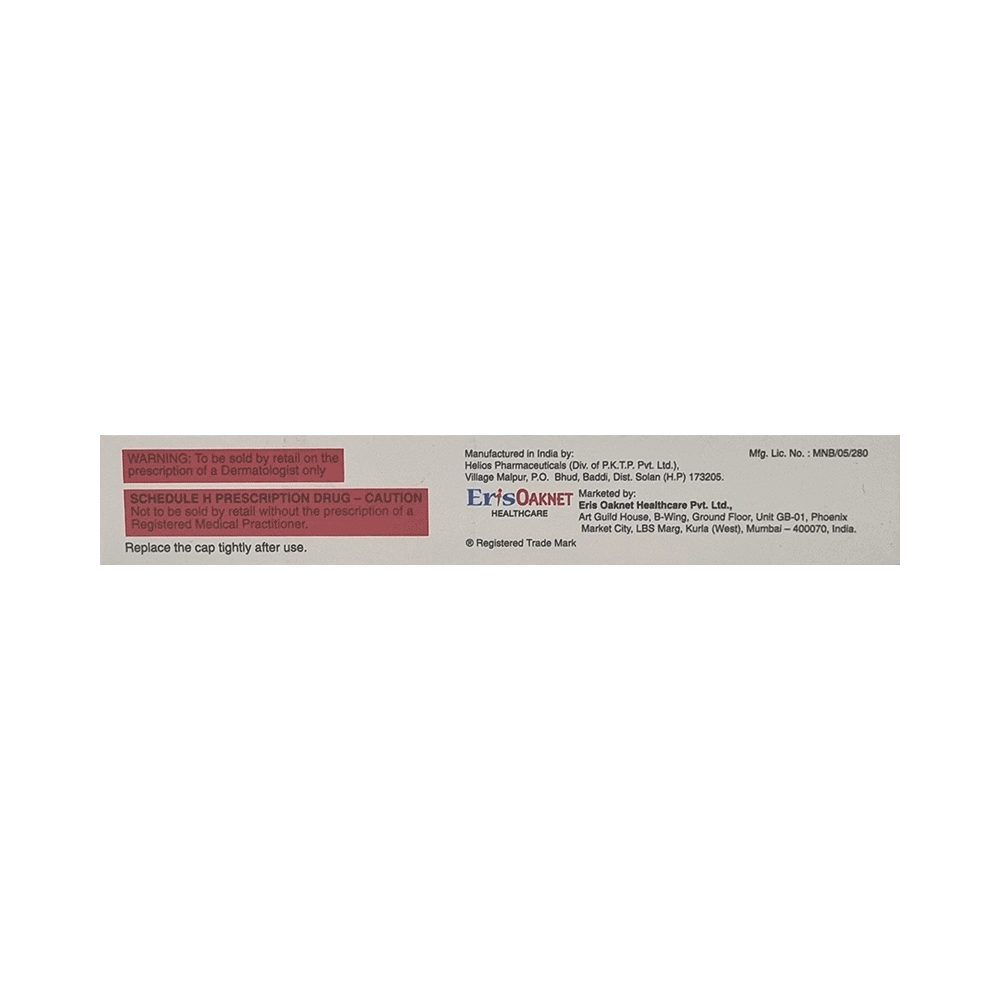
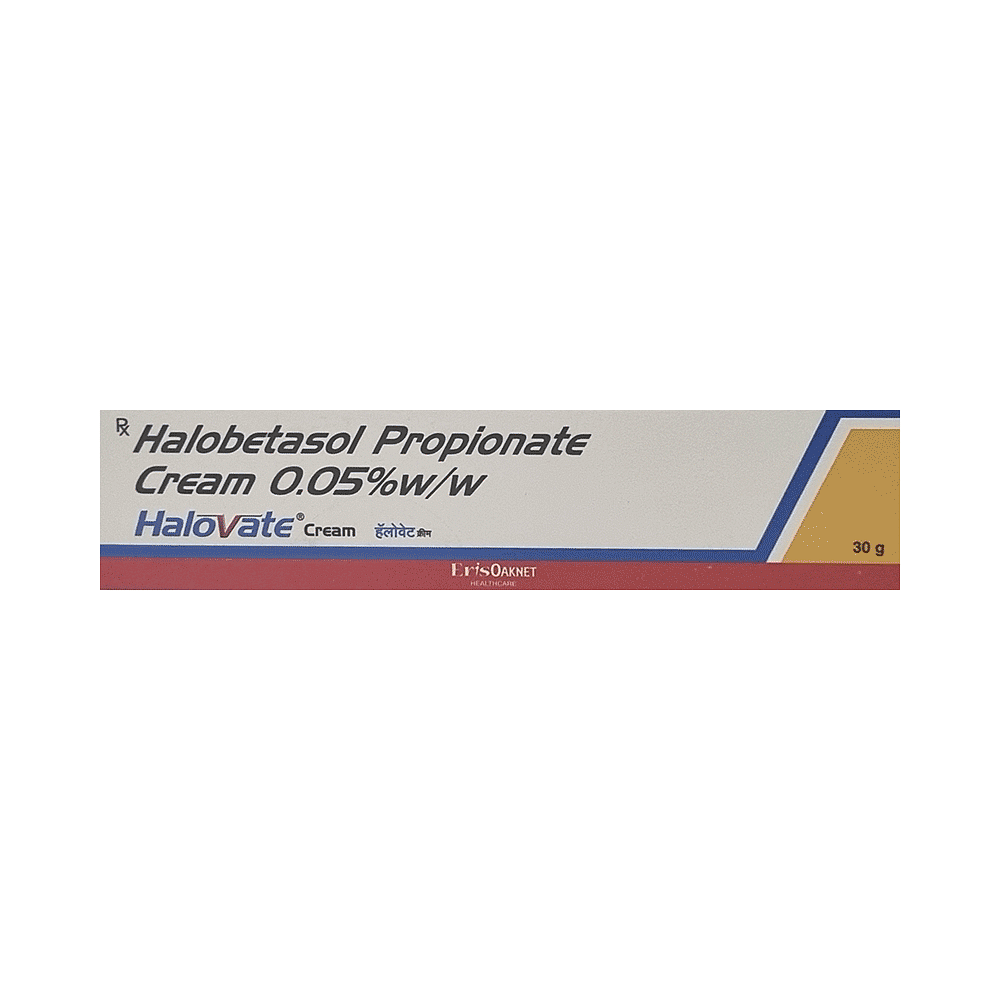
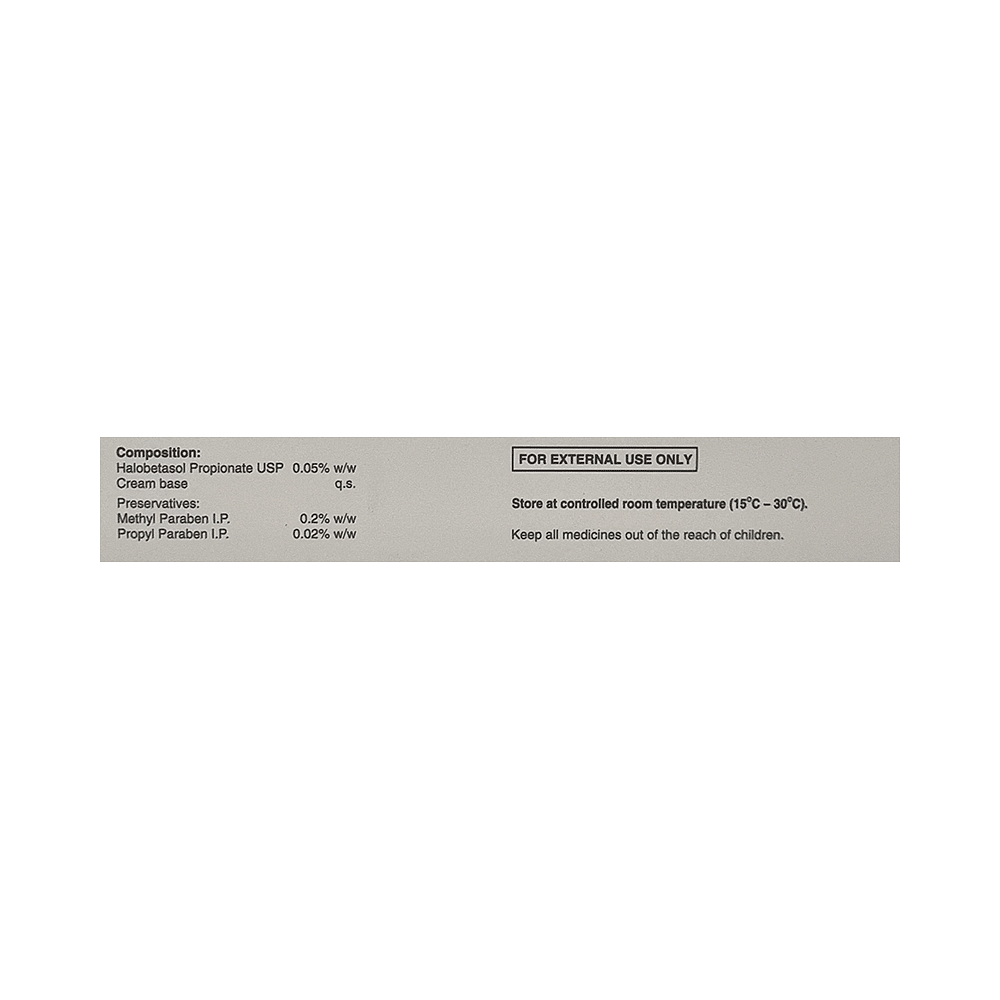
Halovate Cream
Manufacturer
Glenmark Pharmaceuticals Ltd
Salt Composition
Halobetasol (0.05%w/w)
Key Information
Short Description
Halovate Cream is a steroid used for the treatment of allergic disorders and inflammatory skin conditions, providing relief from swelling, redness, and itching.
Dosage Form
Cream
Introduction
Halovate Cream is only meant for external use and should be used as advised by your doctor. You should normally wash and dry the affected area before applying a thin layer of the medicine evenly on the affected skin. Use it regularly to get the maximum from it. Avoid any contact with your eyes, nose, or mouth. Rinse it off with plenty of water in case of accidental contact. Avoid covering the treated area with airtight dressings such as bandages unless directed by a doctor. This medicine may cause burning, irritation, itching, and redness at the site of application. These side effects are temporary and usually go away with time. However, if they persist or worsen, let your doctor know. Pregnant and breastfeeding mothers should consult their doctors before using this medicine. It is not recommended for children under 12 years of age.
Directions for Use
This medicine is for external use only. Use it in the dose and duration as advised by your doctor. Check the label for directions before use. Clean and dry the affected area and apply the cream. Wash your hands after applying unless hands are the affected area.
Safety Information
Side Effects
No common side effects listed
Alcohol Warning
No interaction found/established
Breastfeeding Warning
Halovate Cream is probably safe to use during breastfeeding. Limited human data suggests that the drug does not represent any significant risk to the baby.
Pregnancy Warning
Halovate Cream may be unsafe to use during pregnancy. Although there are limited studies in humans, animal studies have shown harmful effects on the developing baby. Your doctor will weigh the benefits and any potential risks before prescribing it to you. Please consult your doctor.
Interacting Medicines
Acarbose Amlodipine Aprepitant Atazanavir
How it works
Halovate Cream is a steroid. It works by blocking the production of certain chemical messengers (prostaglandins) that make the skin red, swollen, and itchy.
Quick Tips
Halovate Cream is used to treat the redness, swelling, itching, and discomfort of various skin conditions. It should be applied to the affected areas as a thin film two or three times daily or as advised by your doctor. Don't use it more often or for longer than advised by your doctor. Don't cover the area being treated with airtight dressings such as bandages unless directed by a doctor as this may increase the risk of side effects. If you think the area of skin you are treating has become infected you should stop using Halovate Cream and consult your doctor. Consult your doctor if your skin condition has not improved after 2 weeks of treatment.
Related Medicines
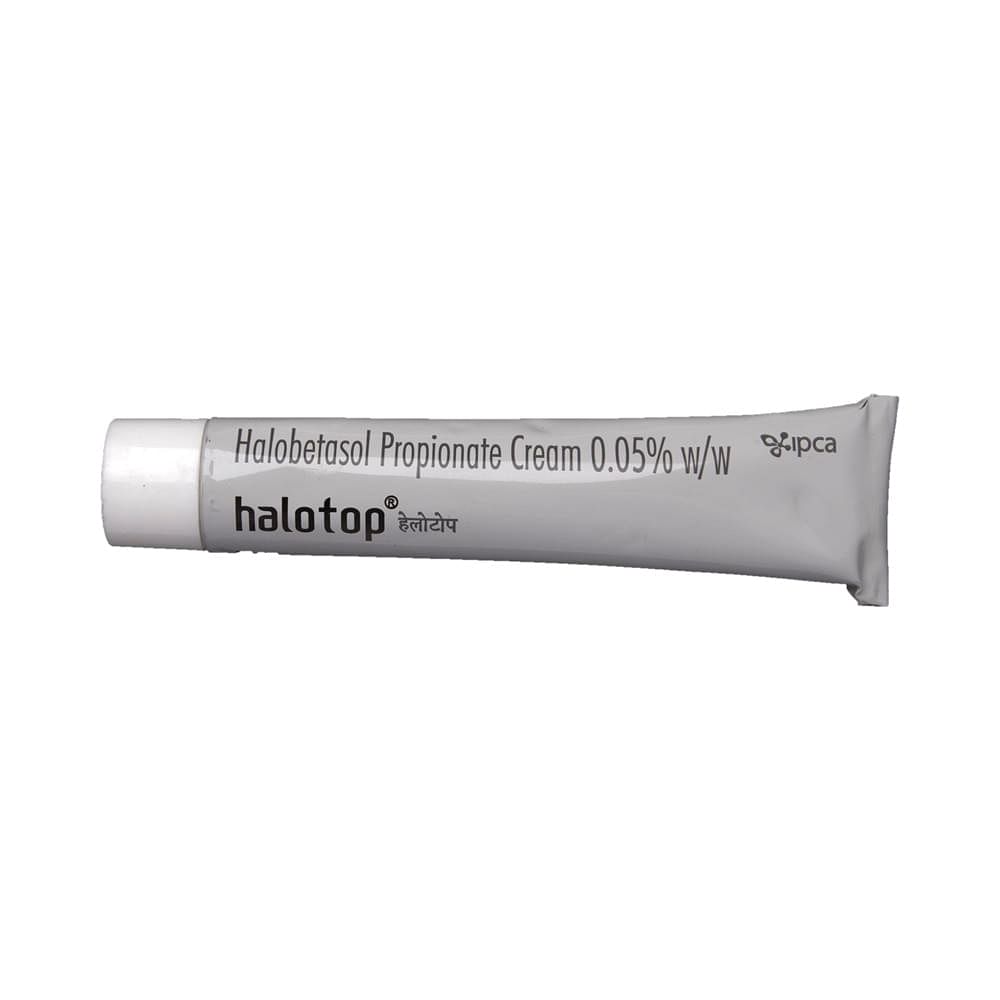
Halotop Cream

Halox Cream

Halovin 0.05% Cream
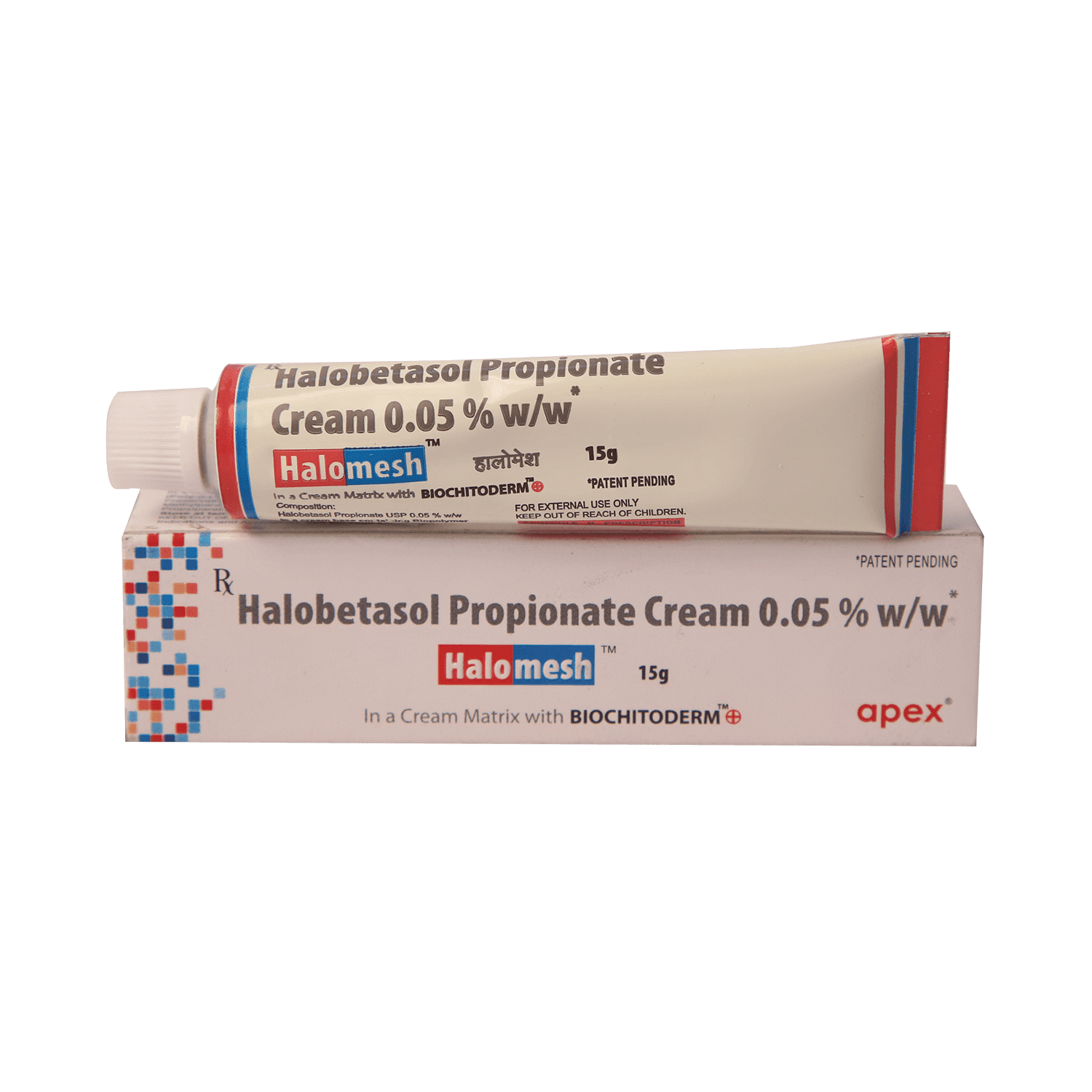
Halomesh Cream

Halotuf Cream

Halonova Cream

Ravisol Cream
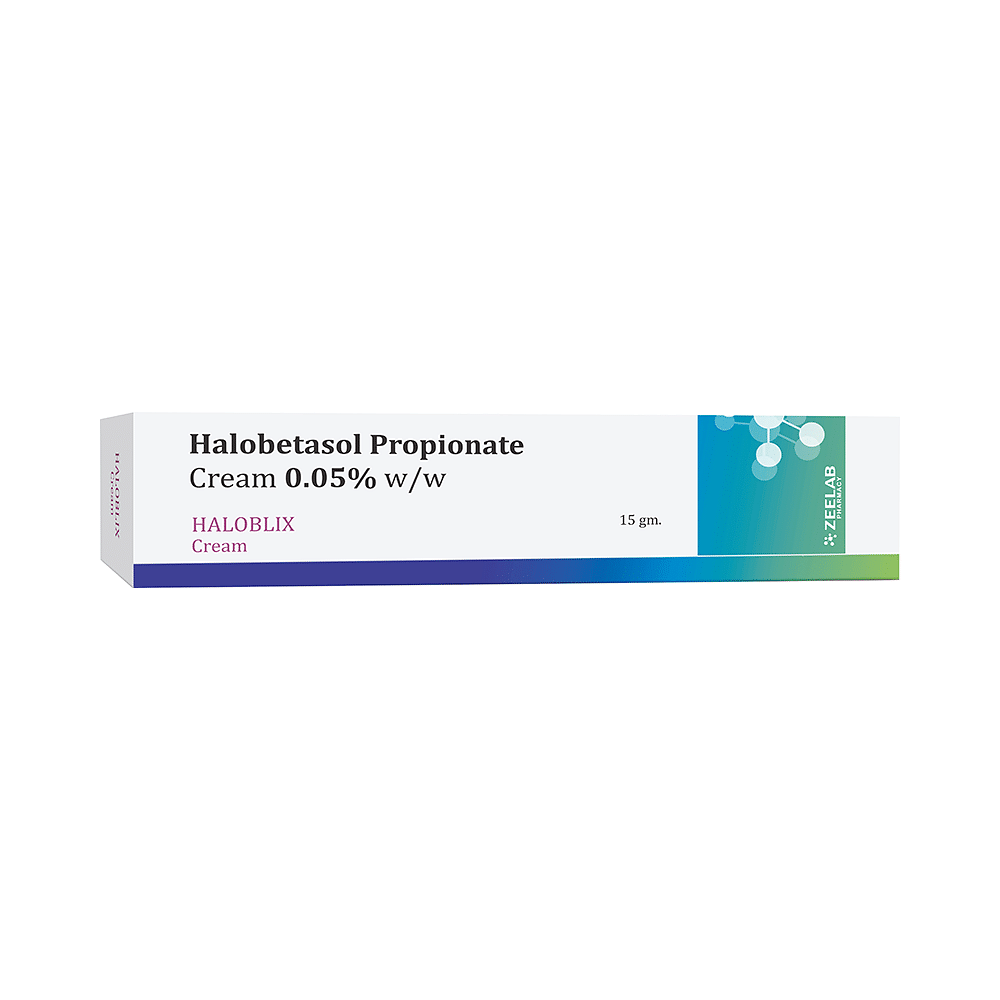
Haloblix Cream

Halostrol 0.05% Cream

Halobest 0.05% Cream
Frequently asked questions
What is Halovate Cream used for?
Halovate Cream is a topical corticosteroid medication that is prescribed to treat inflammatory skin conditions like eczema, psoriasis, and dermatitis. It helps reduce redness, scaling, and swelling associated with these conditions.
How to use Halovate Cream?
Apply a thin layer of Halovate Cream twice daily to the affected areas for up to 2 weeks. If you don't see improvement after this period, consult your doctor to discuss next steps.
What should I do if I forget to use Halovate Cream?
If you miss a dose of Halovate Cream, don't worry and apply it as soon as you remember. However, if you have any doubts or concerns about your medication usage, please consult your doctor.
Can you use Halovate Cream on broken skin?
No, applying Halovate Cream to open wounds is not recommended. It's a steroid that suppresses the immune system and can interfere with wound healing processes. Additionally, steroids may cause skin atrophy which could worsen the existing condition.
Does Halovate Cream cause local irritation or skin reactions?
Halovate Cream may cause mild to moderate side effects like burning, itching, and dryness in some individuals. It's important to inform your doctor about any history of allergy or previous reaction before starting treatment with this medication. In rare cases, the reactions could be caused by ingredients within the drug itself. If you experience a reaction, stop using the medicine immediately and contact your doctor.
Are Ulobetasol and Halovate Cream the same?
Yes, Ulobetasol is the alternate chemical name for Halovate Cream. Both are topical corticosteroids that can be applied to the skin.
What precautions do I need to take while using Halovate Cream?
Avoid contact with eyes and mouth when using Halovate Cream. If it gets into your eyes, rinse them thoroughly with water immediately and contact your doctor. Do not use Halovate Cream if you are allergic to it or any of its ingredients. Tell your doctor if you notice any unusual reactions while starting treatment with this medication, such as swelling, hives, or difficulty breathing. It's important to avoid covering the affected area with bandages for an extended duration, as this may increase absorption and side effects.


